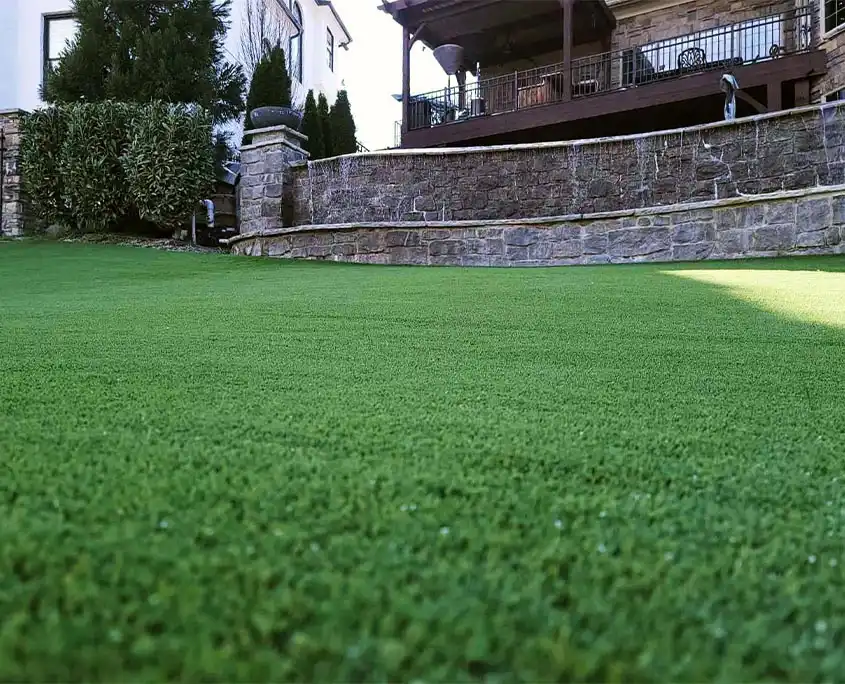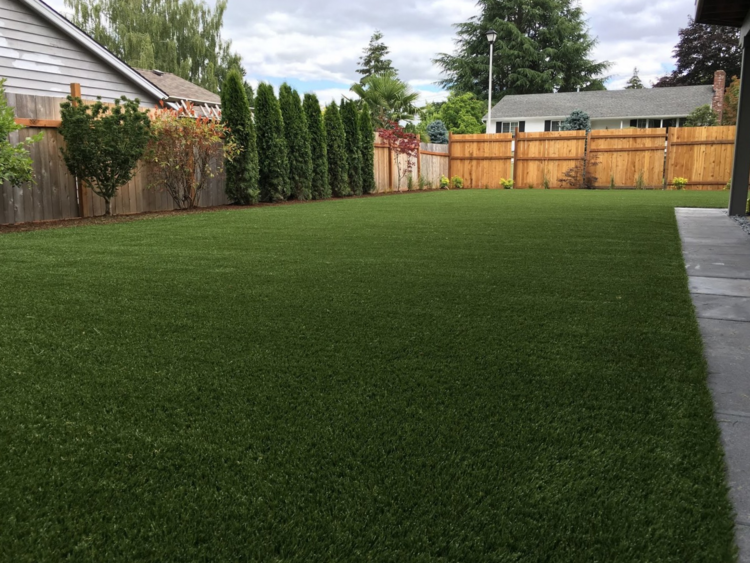Expert Arizona Turf Installation Services for Residential and Commercial Use
Expert Arizona Turf Installation Services for Residential and Commercial Use
Blog Article
Explore the Environmental Perks of Opting for Artificial Grass Solutions
The fostering of synthetic grass options provides an engaging chance to attend to pushing environmental difficulties. By dramatically lowering water use and decreasing the application of harmful chemicals, these choices not just advertise sustainable landscaping however additionally shield neighborhood communities. The reduced carbon footprint associated with reduced maintenance tasks adds to a more lasting method to land management. The effects of these advantages extend past mere conservation efforts, raising questions regarding their long-term influence on habitat conservation and general eco-friendly balance. Discovering these dimensions exposes a complex interaction worth thinking about.
Water Preservation Benefits
One of one of the most considerable advantages of synthetic grass is its capability to preserve water. Traditional yard yards need considerable watering, particularly in areas prone to dry spell or water limitations. In contrast, synthetic grass does not need watering, considerably reducing the total need for water sources. This feature is especially advantageous in dry regions where water shortage is a pressing worry.
By getting rid of the demand for regular watering, synthetic grass adds to sustainable landscape techniques and aids mitigate the environmental influence of extreme water consumption. Moreover, the conservation of water prolongs to the decrease of overflow, which can cause dirt disintegration and river air pollution.
Furthermore, the installment of man-made turf enables property owners and communities to assign water resources extra successfully, concentrating on vital uses such as alcohol consumption water and farming. The shift towards synthetic grass not just advertises responsible water usage but additionally lines up with more comprehensive ecological goals intended at protecting all-natural resources.
As areas significantly focus on sustainability, the water conservation advantages of fabricated turf offer a compelling situation for its adoption in domestic and industrial landscape design tasks.
Minimized Chemical Use
The change to synthetic grass substantially lowers the reliance on chemical therapies frequently used in natural yard upkeep. Traditional grass management commonly entails the application of plant foods, herbicides, and chemicals to promote development and control pests. These chemicals can position risks to human health, local wildlife, and the environment, adding to dirt and water contamination.
In contrast, fabricated turf removes the demand for these dangerous materials. By decreasing the launch of artificial substances right into the community, fabricated grass advertises much healthier soil and water systems.
Moreover, the lack of chemical runoff related to synthetic grass installations assists safeguard local waterways from contamination, sustaining water life and maintaining biodiversity. Arizona turf. As neighborhoods increasingly prioritize sustainable methods, going with synthetic grass provides a practical service that lines up with ecological conservation goals. Through this shift, homeowner can take pleasure in rich eco-friendly rooms without jeopardizing eco-friendly wellness, paving the method for a more lasting future
Reduced Carbon Impact

In addition, the installation of synthetic grass can result in considerable water preservation. Natural yards call for considerable amounts of water for watering, which not just includes in the carbon footprint associated with water removal and treatment yet also stress regional water sources. On the More Help other hand, synthetic grass needs very little upkeep, needing no watering, therefore considerably minimizing water use and its linked power costs.
Additionally, the durability of synthetic grass adds to its lower carbon influence. With a life-span of up to 15 years or even more, the need for frequent substitutes is diminished, resulting in much less waste and reduced power intake his response in production and taking care of traditional turf alternatives. In general, synthetic grass presents a lasting alternative for eco mindful landscaping.
Habitat Preservation
Environment conservation is a vital consideration in the debate over landscape design selections, especially when comparing synthetic grass to all-natural turf. All-natural lawn lawns typically require extensive maintenance, consisting of making use of plant foods, herbicides, and pesticides, which can negatively impact regional ecosystems. These chemicals can seep right into the soil and waterways, damaging native plants and animals and interrupting local environments.
Man-made lawn removes the demand for harmful chemicals, thus safeguarding close-by wildlife and maintaining the stability of surrounding environments. The setup of man-made click here for info grass can lead to the conversion of former grass areas right into even more biodiverse landscapes, such as pollinator gardens or native plant areas, which can sustain regional wildlife.
Ultimately, the transition to artificial lawn not just saves water and minimizes maintenance efforts yet additionally cultivates a much more harmonious partnership in between human activities and the natural surroundings, promoting environment conservation in the procedure.
Long-Term Sustainability
Long-lasting sustainability is a vital consider assessing the advantages of artificial turf over conventional yard lawns. Among the most substantial advantages of man-made lawn is its resilience; it can last up to 15-20 years with minimal maintenance, whereas all-natural yard calls for frequent reseeding and substitute. This long life decreases the need for constant resources, such as water, fertilizers, and pesticides, which are essential for preserving a healthy turf yard.
Furthermore, synthetic grass adds to a decrease in carbon exhausts related to grass care devices. Typical lawns usually require gas-powered mowers, leaners, and blowers, all of which add to air contamination. Artificial turf companies phoenix. In comparison, synthetic grass removes the demand for such equipment, promoting a cleaner atmosphere
In addition, the manufacturing of synthetic grass significantly utilizes recycled materials, enhancing its sustainability profile. As suppliers embrace environmentally friendly methods, the environmental impact of synthetic grass continues to diminish.

Final Thought
The fostering of synthetic grass remedies offers substantial ecological benefits, consisting of significant water preservation, minimized dependence on dangerous chemicals, and a reduced carbon impact. Fabricated lawn aids in preserving all-natural environments by lessening land disruption and promoting long-term sustainability via the use of resilient materials. Collectively, these factors emphasize the possibility of synthetic grass to contribute favorably to environmental wellness and use a practical alternative to standard landscaping techniques in a significantly resource-conscious world.
In comparison, synthetic turf does not require watering, considerably lowering the general need for water resources. By decreasing the release of artificial compounds right into the environment, artificial grass promotes much healthier dirt and water systems.
Additionally, the installation of man-made turf can result in significant water conservation. In comparison, synthetic lawn needs minimal upkeep, needing no watering, thus dramatically minimizing water use and its linked energy expenses.

Report this page